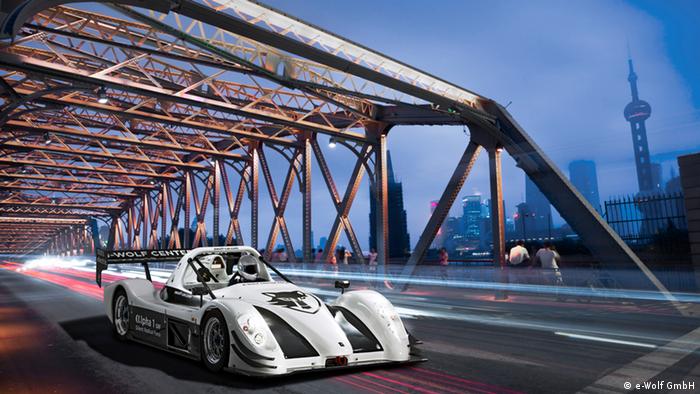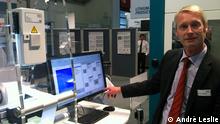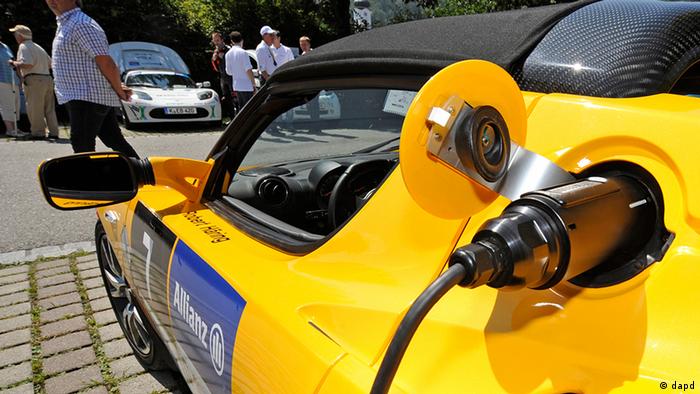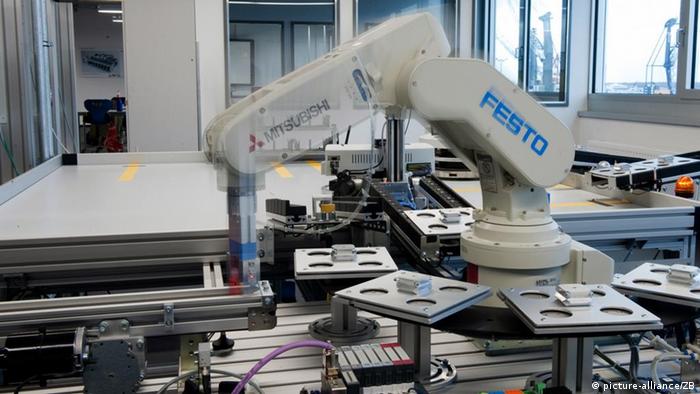Just 4,500 electric cars are on the road today in Germany. By 2020, the government wants one million. Concerns about price and performance still abound. The robotics industry says it can help.
At the robotics expo in Munich, Automatica, a bunch of men stand around admiring a shiny white race car. It's called the Alpha Silent Radical Force and it's made by German manufacturer E-Wolf. This vehicle goes from 0 to 100 kilometers an hour in 3.7 seconds and, perhaps surprisingly, it's one hundred percent electric.
"This car has amazing acceleration - it just goes to prove that our batteries and our electric motors are actually good enough already," Dr Eric Maiser from the German engineering network VDMA told DW.
Unfortunately, the German car-buying public isn't so convinced. According to the Federal Motor Transport Authority (KBA), there are a little over 4,500 electric cars on the road right now in Germany. Three years ago, the German government said it wanted to have one million electric cars in use by the year 2020. Right now, that goal seems well out of reach.

At 750,000 Euros this E-Wolf racer is an extreme example, but generally electric cars are more expensive
So what's the reason for the low sales? Some say that German consumers aren't purchasing electric cars because of their strong support of the established car companies here.
"Not one of the big German manufacturers produces an electric car - that will happen at the earliest in 2013", said automotive journalist, Ralf Carsten Schumacher.
Cost the main concern
Dr Maiser thinks consumers would go for the vehicles if their costs were to come down.
"For people like you and me to buy an electric car the price needs to go down dramatically, and the production costs do too."
Almost half the cost of electric cars is tied up in their batteries. There are some 20 construction steps involved in the production process, and humans are still used for some of them. So far the robots haven't been built to handle the job, but Dr Maiser thinks they could revolutionize the process.
"It's like with photovoltaic technology. People always say, let's wait until the efficiency is better. I disagree. Let's take the technology we have now and just do it cheaper. The new technologies will arise through mass production."
Reducing wastage

Martin Lehmköster says his robots minimise environmental impact
One step in the battery construction process that is particularly important is quality testing. This is because an electric car battery with even a slight defect is dangerous and needs to be disposed. Here, too, automation offers cost-savings.
"The earlier we check the battery cells, the more likely I will be able to then recycle the components and, potentially, start again from the beginning," said Martin Lehmköster from the testing company ISRA Vision.
Lehmköster says some of the most expensive components are the sheets of aluminum and copper. When they have to be thrown out at the end of the production process, like is often the case now, the costs skyrocket.
"Sometimes the right testing can lead to companies even changing their construction methods completely."

Most electric cars need recharging at the end of each day, something that consumers aren't too keen on
Electric cars inherently limited
Heiner Hans Heimes from RWTH University in Aachen says there are some limitations to electric cars that are going to persist for a long time to come.
"Making car batteries with a range of more than 500 km is going to be tough," Heimes told DW. "We see electric cars more as being a second car and that it will establish itself on the market in this way. People wanting to travel quickly from Munich to Hamburg, won't have a chance to have an electric car in the foreseeable future."
Even with an increase in automation, there are still certain steps in battery construction that will have to be done by hand, according to Meiser.
"You cant do everything with robots, certainly not straight away. In the photovoltaic industry there are still steps that are done by hand. It's a big investment too. As a manufacturer you have to decide where it makes sense."
Author: André Leslie
Editor: Nathan Witkop
Editor: Nathan Witkop

Comments